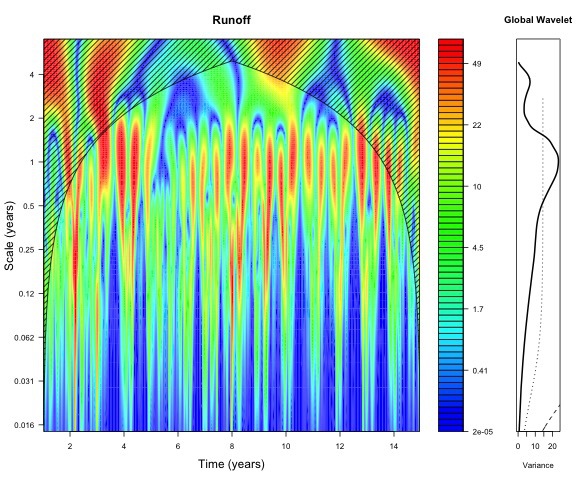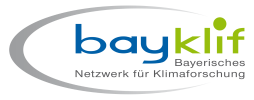TP5 Prognosis and analysis of the behavior of small catchment areas in the context of local climate change
AQUAKLIF_TP5
From 04/2018 to 07/2023Principal Investigator: Britta Aufgebauer, Sven Frei
Staff: Lisa Kaule
What is it about?
 The average temperature of the earth has been rising for a long time now, and the resulting consequences for ecosystems are only poorly understood. It has been shown that climate change also impacts the water chemistry of rivers and streams.
The average temperature of the earth has been rising for a long time now, and the resulting consequences for ecosystems are only poorly understood. It has been shown that climate change also impacts the water chemistry of rivers and streams.
In this subproject, data of the integrated hydrological monitoring programs collected over decades at the University of Bayreuth and the Bavarian Environment Agency (LfU) are statistically analyzed. Objectives of this subproject are: Are there clear trends and patterns in the time series that can be traced back to local climatic changes in the different catchments? Can causal relationships be proven statistically? Depending on the local climate scenarios of the Bavarian Environment Agency, can it be used to predict future developments of water-chemical parameters?
...and as scientists would put it:
Hydrological and biogeochemical processes in small catchment areas significantly influence the water quality in the headwaters of rivers and streams. Long-term trends in time series, such as the globally increasing concentrations of dissolved carbon in the runoff, can be understood as a system response to changing hydrological/climatic boundary conditions. Often, however, a clearly identifiable relationship between climatic drivers and changing processes in the catchment area and the resulting system response is difficult or impossible to detect. For the statistical description of these relationships as well as the systematic description and characterization of datasets, time series analysis offers a wide range of methods.
The aim of this subproject is to systematically analyze the long-term data from the monitoring program of the Bavarian Environment Agency (LfU) for correlations and patterns that can be attributed to the effects of local climate change in the last 20-30 years. In addition, future developments will be estimated using a statistical forecasting model (artificial neural networks) based on local climate forecasts and scenarios. Findings from this subproject will be used in practice-oriented recommendations for decision-makers at local and regional level.





